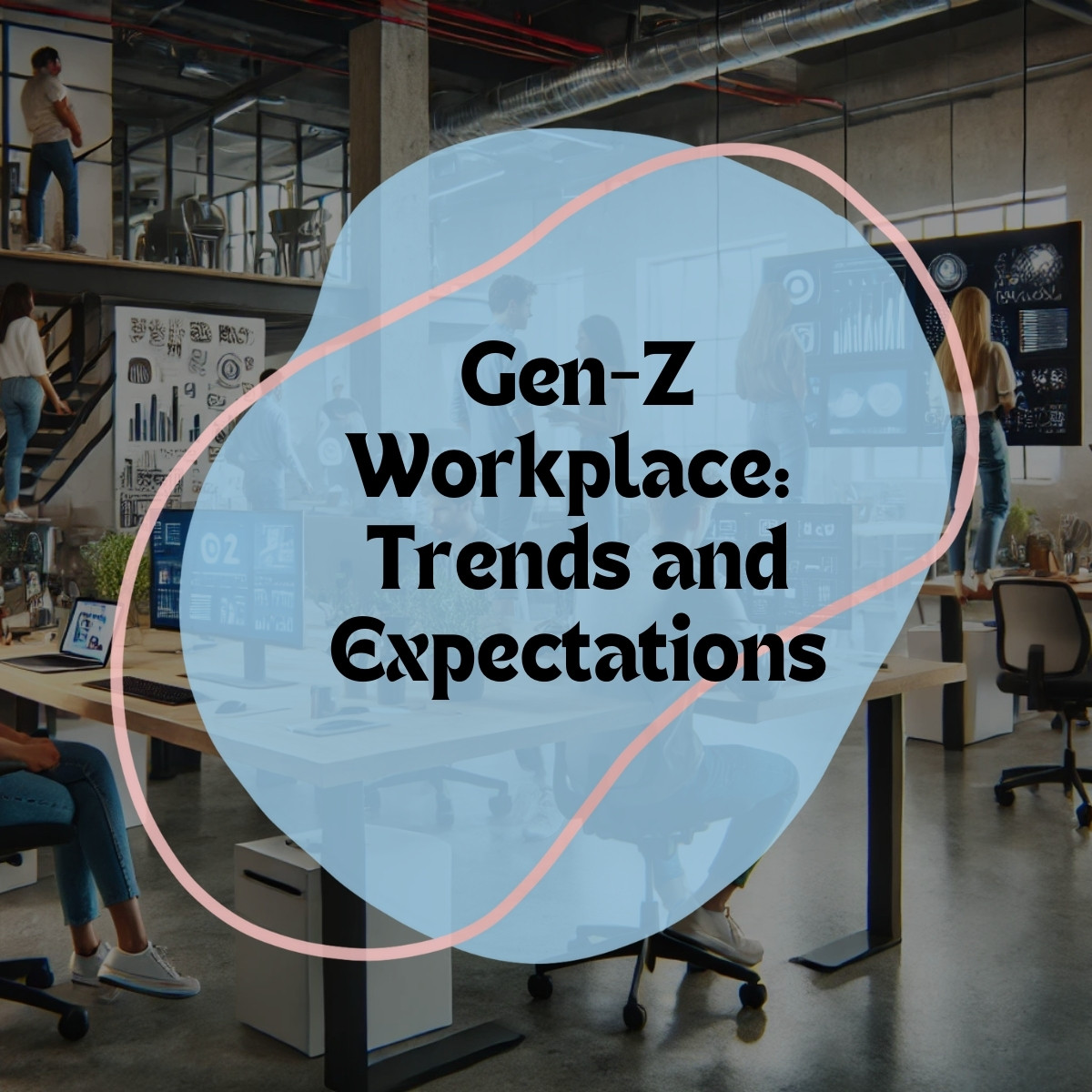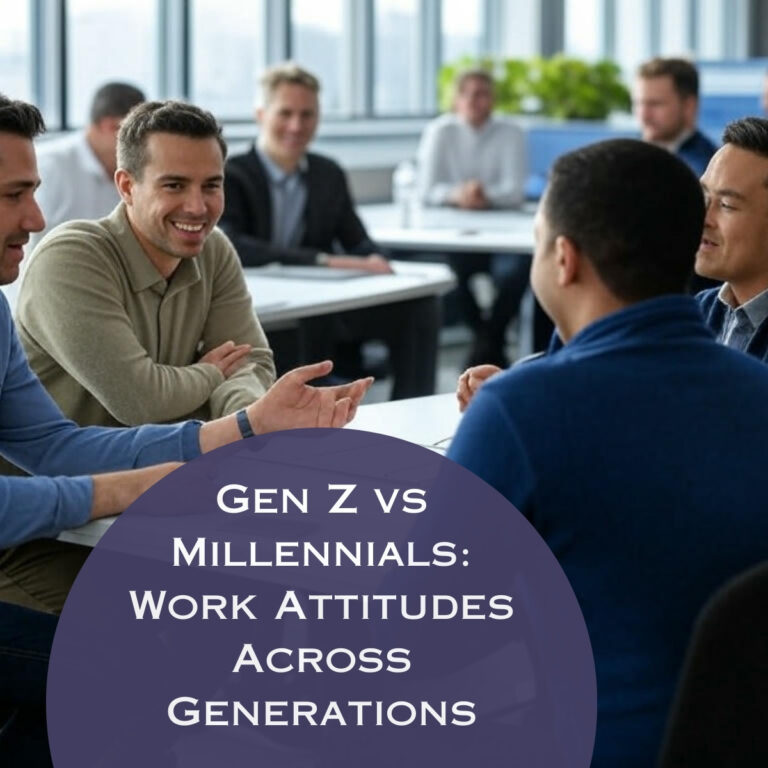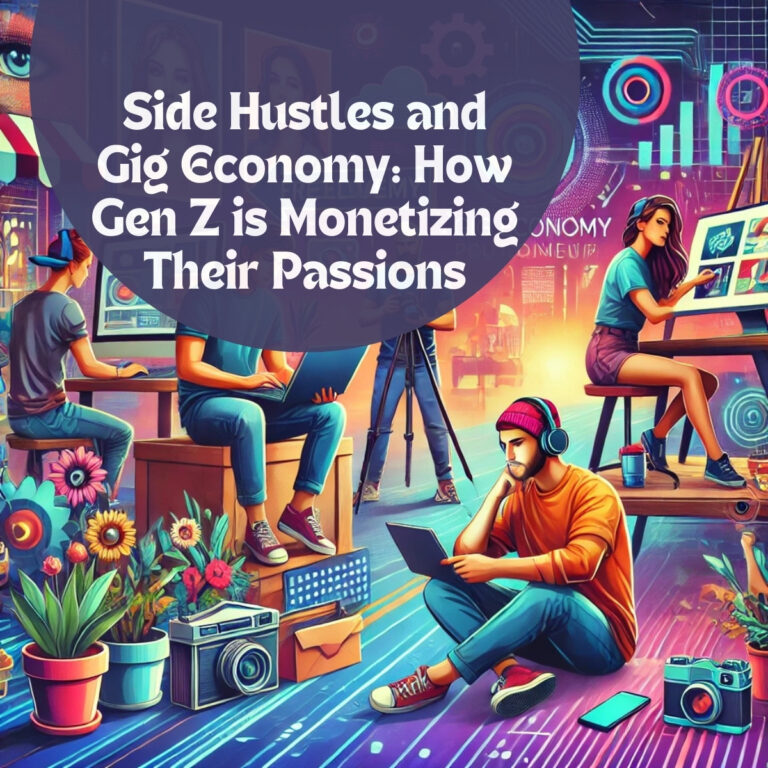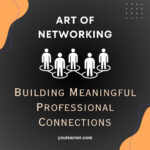How Gen Z is Redefining the Workplace Trends and Expectations
The workplace has always evolved with each generation, but the arrival of Generation Z—those born between the mid-to-late 1990s and early 2010s—is driving a more dramatic shift than ever before. As digital natives who have grown up in a world of rapid technological advancements, social media, and global connectivity, Gen Z brings new expectations, values, and work habits that are redefining the modern workplace. Employers who want to attract and retain this generation must understand and adapt to their priorities, work styles, and professional aspirations.
The Key Workplace Trends Driven by Gen Z – Redefining the Workplace Trends and Expectations
1. Emphasis on Work-Life Balance and Flexibility
Gen Z values work-life balance more than any previous generation. Having witnessed the burnout culture experienced by Millennials, they are prioritizing mental health, personal time, and flexible work arrangements. They expect employers to provide options such as remote or hybrid work, flexible hours, and mental health days. Unlike previous generations who saw long hours as a badge of honor, Gen Z believes in working smarter, not harder.
2. Demand for Purpose-Driven Work
Unlike older generations who may have prioritized job security and salary, Gen Z is deeply focused on finding meaning in their work. They seek out companies with strong corporate social responsibility (CSR) programs, ethical business practices, and missions that align with their personal values. This generation is more likely to engage with organizations that address social and environmental issues, such as climate change, diversity and inclusion, and fair labor practices.
3. Digital-First Work Environment
Having grown up with the internet, smartphones, and social media, Gen Z is the most digitally fluent generation in history. They expect workplaces to be equipped with cutting-edge technology that enhances productivity and collaboration. Slow or outdated technology frustrates them, and they favor digital-first communication channels like Slack, Microsoft Teams, and video calls over traditional emails and in-person meetings.
4. Continuous Learning and Career Development
Gen Z values continuous learning and career development. Unlike older generations who may have viewed job stability as the ultimate goal, Gen Z sees work as an opportunity for personal and professional growth. They prefer employers who invest in their skills through mentorship programs, professional development courses, and opportunities for advancement. If they feel stagnant in their roles, they are more likely to leave for better opportunities.
5. Preference for a Collaborative and Inclusive Culture
This generation thrives in diverse and inclusive work environments. They expect workplaces to promote equity, celebrate diversity, and actively combat discrimination. They value open communication and collaboration over rigid hierarchies. Gen Z wants to work in teams where their voices are heard and where employees from all backgrounds feel represented and empowered.
6. Entrepreneurial Mindset and Side Hustles
Gen Z is highly entrepreneurial, with many members engaging in side hustles, freelancing, or starting their own businesses. They value financial independence and multiple income streams, which influences their approach to work. Many are attracted to workplaces that allow for intrapreneurship—where employees can innovate and take ownership of projects within the company. Companies that encourage creativity and provide opportunities for employees to explore their own ideas will likely be more appealing to Gen Z.
7. Expectation for Transparent Communication and Feedback
Gen Z appreciates transparency in the workplace. They expect leaders to be open about company decisions, financial performance, and career growth opportunities. Traditional annual performance reviews are often seen as outdated, and Gen Z prefers continuous feedback, regular check-ins, and clear expectations about their roles and performance.
8. Increased Focus on Mental Health and Well-Being
Mental health awareness is a priority for Gen Z. Unlike previous generations who may have hesitated to discuss mental well-being in the workplace, Gen Z openly advocates for mental health resources, stress management programs, and supportive work cultures. They expect employers to offer benefits like counseling services, mindfulness programs, and a culture that encourages self-care and open discussions about mental health.
How Employers Can Adapt to Gen Z’s Expectations
To attract and retain Gen Z talent, companies must be willing to adapt to their values and expectations. Here are some strategies employers can implement:
1. Offer Flexible Work Arrangements
Employers should embrace remote work, flexible schedules, and hybrid models. Allowing employees to work when and where they are most productive not only attracts Gen Z but also improves overall employee satisfaction and retention.
2. Foster a Purpose-Driven Workplace
Companies must prioritize CSR initiatives and ensure their business practices align with ethical and social responsibility standards. Transparency about a company’s impact on the environment and society is crucial in appealing to Gen Z job seekers.
3. Invest in Digital Tools and Technology
Workplaces should integrate the latest digital tools and platforms to facilitate seamless communication, collaboration, and efficiency. Employers should also be open to feedback on technology from their Gen Z employees to stay ahead of the curve.
4. Provide Learning and Growth Opportunities
Companies must invest in upskilling and reskilling their workforce through mentorship programs, leadership training, and access to online courses. Providing clear career paths and internal mobility opportunities will help retain Gen Z employees.
5. Prioritize Diversity, Equity, and Inclusion (DEI)
Businesses need to create inclusive work environments by promoting diverse hiring practices, supporting employee resource groups (ERGs), and ensuring that all employees feel valued and heard.
6. Encourage an Entrepreneurial Culture
Employers should provide opportunities for employees to explore new ideas, contribute to innovation, and even lead internal projects. A culture of creativity and autonomy can increase engagement and job satisfaction.
7. Implement Continuous Feedback Mechanisms
Replacing traditional annual reviews with continuous feedback loops, one-on-one check-ins, and career development conversations will help keep Gen Z engaged and aligned with their career goals.
8. Support Mental Health Initiatives
Providing access to mental health resources, promoting a healthy work-life balance, and fostering a supportive company culture will be crucial in maintaining a happy and productive Gen Z workforce.
Conclusion
Gen Z is reshaping the workplace with its unique values, expectations, and work habits. This generation prioritizes flexibility, purpose-driven work, technology integration, diversity, and mental well-being. Companies that want to thrive in the future must adapt to these trends by embracing change and creating environments where Gen Z employees feel supported, valued, and empowered. By doing so, businesses can build a workforce that is innovative, engaged, and committed to long-term success.







